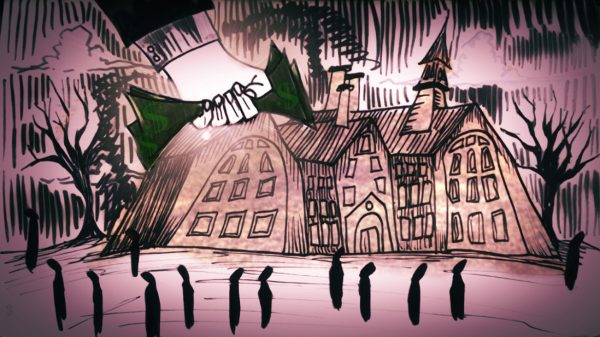Misguided use of Pan-African flag
I should preface this column by saying that, as far as separatist movements go, Black History Month is fairly innocuous.
It adequately captures, or attempts to, the innumerous accomplishments of African Americans, and, notwithstanding a few low attempts at commandeering by politically motivated and factually challenged radicals – ahem, Black Lives Matter – it is generally seen as an honored month by most Americans.
Whether February, notably shy of the 30-day mean boasted by most months, can effectively capture the spirit of black history is questionable. After all, the other months were captured by “awareness” months as well, to signify diseases and issues everyone knows about.
Everyone is aware of cancer; not everyone knows that Lonnie G. Johnson, an African American NASA engineer, invented the Super Soaker, and in doing so, the memorable childhood. Black History Month exists for men and women like him.
But it does not exist for despotism on the African continent. In that regard, UVM’s attempt in joining in this commemorative occasion is reprehensible and ignorantly misguided.
By raising the Pan-African flag at the Davis Center, they legitimize a movement that a) in no way represents African Americans, b) is as ill-conceived as the idea South Africans have anything in common with Egyptians and c) involves only the worst sorts of characters, like Moammar Gadhafi, Kwame Nkrumah and Robert Mugabe.
The vision of Pan-Africanism was conceived much earlier, before the post-WWII decolonization period, by Marcus Garvey, a West-Indian political leader who endorsed the creation of a black pride movement around the ‘20s:
“Show me the race or the nation without a flag, and I will show you a race of people without any pride. Aye! In song and mimicry they have said, ‘Every race has a flag but the coon.’ How true! Aye!” he wrote.
His black pride movement later became an African Nationalist movement during the decolonization period, and took on a great deal of socialist and communist ideology, as was trendy during the time. To a large degree, that hasn’t really changed.
For many despots on the continent, Pan-African ideology became the method used to consolidate power and crush opposition.
When Libyan aggression – blowing up civilians in a nightclub in West Berlin, occupying Chad for uranium and otherwise being the willing goons of the Soviets – prompted the West to isolate Gadhafi, he turned to sub-Saharan Africa for allies.
He largely abandoned the rhetoric of Arab Socialism, dressed less like a military junta and more in princely robes of gold and purple in an attempt to appear more sub-Saharan (some people, particularly at UVM, would call this “cultural appropriation”).
He even started talking about industry privatisation. Nkrumah had a similar experience, and married an Egyptian woman to show solidarity with his Arab neighbors to the north.
When the African Union was finally formed in 1999, Gadhafi, ruling an oil-rich Libya, became the sweetheart of the continent.
Nobody seemed to have anything to say about his own colonial adventuring, and even less to say about his efforts to install friendly governments in oppositional regions. The African Union refused to prosecute him at the International Criminal Court’s request.
He was untouchable (until, of course, 2011), and had the support of famous South African poet Zolani Mkiva (who was proclaimed the “King of African Poetry” at a 1995 poetry festival in Zimbabwe), who called Gadhafi a “king of kings.”
He also praised Fidel Castro, Hugo Chavez and Yasser Arafat as righteous men. The odor of collectivist barbarism isn’t far gone.
As a practical matter, Pan-Africanism makes no sense.
In theory, it would erase a continent that is rich in diversity. In practice, it would do the same, and leave the consolidating to men like Gadhafi, who wasn’t so much interested in the merits of the idea as stifling his opposition.
Absent that, it’s difficult to see, in the first place, how Pan-Africanism relates to the American experience of blacks. It was a far flung idea by African despots, and hardly represents the struggles and outright brutality suffered by African-Americans.
Garvey may have intended the flag to represent black pride, but for half a century, it represented political tyranny.
Black History Month is for Lonnie Johnson and others who accomplished great things here amidst great hardship. Not for political opportunists.










![Can’t buy me [self] love](https://vtcynic.com/wp-content/uploads/2024/04/self-care-FINAL-600x398.jpg)
